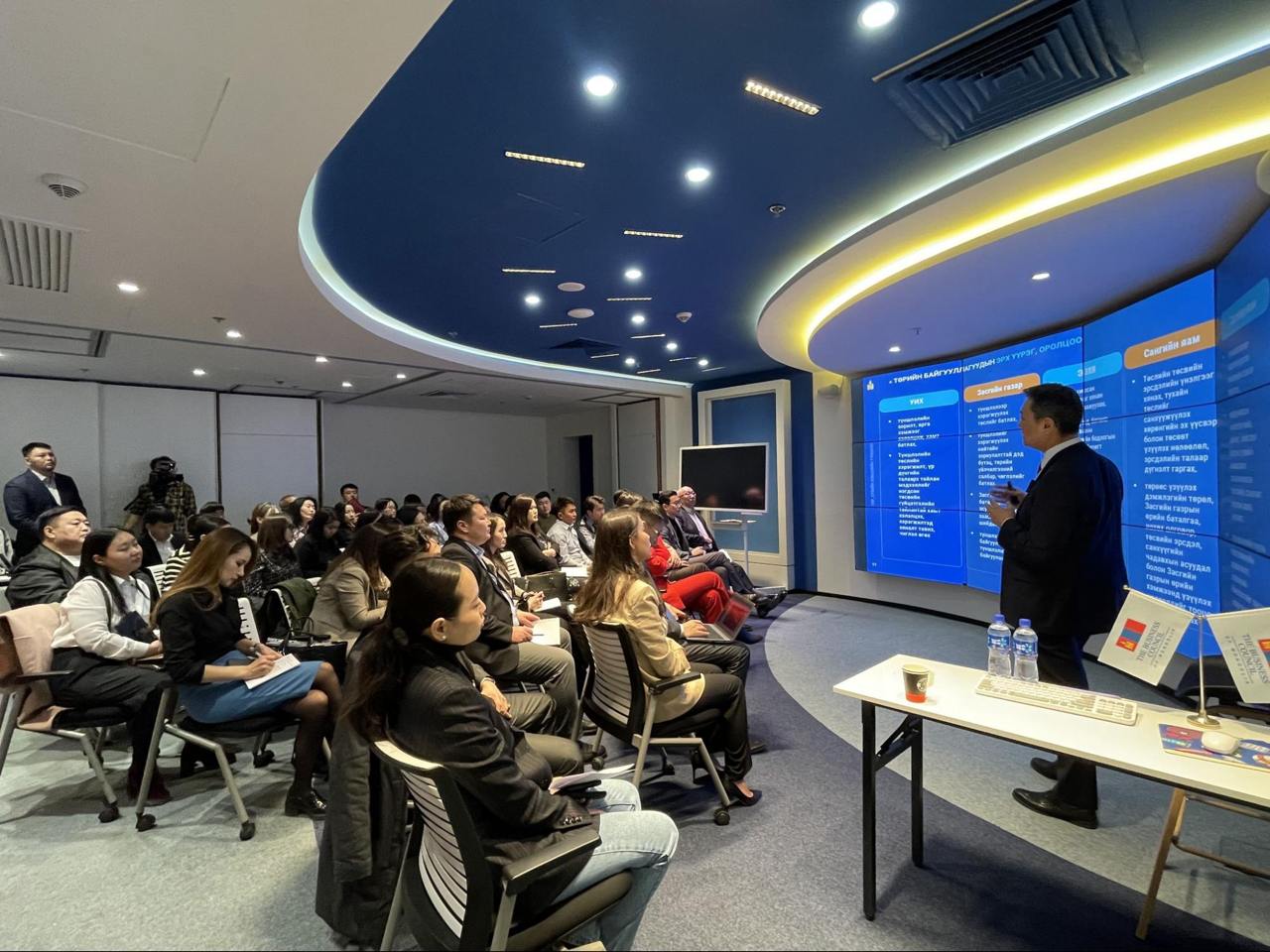Mongolia’s workforce landscape is evolving. Across industries like mining, banking, and tech, leaders face more complex challenges than ever before. Teams are diverse, markets are interconnected, and operational pressures are high. In this environment, technical expertise alone is no longer enough. Leadership now demands strong soft skills—communication, emotional intelligence, problem-solving, and strategic thinking—to drive both individual and organizational success.
Soft skills training is becoming increasingly recognized as a strategic investment. Leaders who cultivate these abilities are better equipped to inspire teams, manage change, and build resilient organizations.
Understanding Soft Skills in Leadership
Soft skills refer to personal attributes and interpersonal abilities that influence how leaders interact with their teams, make decisions, and handle challenges. Key skills for executives include:
Communication: Conveying ideas clearly, actively listening, and engaging with stakeholders across levels.
Emotional Intelligence: Understanding one’s own emotions, empathizing with others, and managing conflict effectively.
Decision-Making & Problem-Solving: Navigating uncertainty and making informed choices that balance short- and long-term goals.
Collaboration & Team Building: Creating a culture of trust, accountability, and innovation.
Adaptability: Leading through change and uncertainty in a rapidly shifting business landscape.
In Mongolia, where many organizations are expanding or modernizing, these skills are particularly vital. Leaders with strong soft skills help bridge generational gaps, manage multicultural teams, and integrate modern management practices into traditional business contexts.
Why Soft Skills Matter in Mongolia’s Leadership Roles
1. Managing Diverse Teams
Mongolia’s labor market is becoming increasingly diverse. Organizations now include employees from different cultural, educational, and professional backgrounds. Executives with strong soft skills can foster collaboration across these differences, reducing misunderstandings and improving team cohesion.
2. Navigating Rapid Change
Industries like mining and finance face dynamic regulations, technological upgrades, and global market pressures. Leaders who can adapt, communicate change effectively, and maintain team morale are more successful than those who rely solely on technical expertise.
3. Enhancing Employee Retention
Soft skills directly impact workplace satisfaction. Leaders who listen, mentor, and provide constructive feedback are more likely to retain high-performing employees. In a competitive market like Mongolia’s, retention is critical for sustaining business growth.
4. Driving Innovation
Innovation often emerges from collaboration, open dialogue, and a culture that encourages experimentation. Executives with strong interpersonal skills can create environments where teams feel safe to share ideas, leading to better problem-solving and creative solutions.
The Current State of Soft Skills Training in Mongolia
While technical and functional training is well-established, soft skills training is relatively nascent in Mongolia. However, the growing demand for professional leadership has led organizations to integrate soft skills programs, often through:
Executive coaching: One-on-one mentorship focusing on leadership behaviors, communication, and emotional intelligence.
Workshops and seminars: Group sessions designed to improve team management, conflict resolution, and presentation skills.
Online learning platforms: Flexible courses covering topics like negotiation, leadership, and workplace psychology.
Cross-functional projects: Practical experience that encourages collaboration, problem-solving, and decision-making.
Companies that invest in these programs report measurable improvements in employee engagement, leadership effectiveness, and organizational performance.
Key Areas of Soft Skills Development
Communication Skills
Strong communication goes beyond speaking clearly. It involves active listening, crafting persuasive messages, providing feedback, and adjusting communication style to different audiences. In Mongolia, where hierarchical organizational cultures are common, training leaders to communicate transparently and empathetically can break down barriers and foster collaboration.
Emotional Intelligence
Leaders with high emotional intelligence can navigate conflicts, motivate teams, and understand the impact of their actions on others. Emotional intelligence training focuses on self-awareness, empathy, and relationship management—skills that are particularly useful for managing teams across urban and regional offices.
Strategic Thinking & Problem-Solving
Decision-making in dynamic markets requires analytical thinking, creativity, and the ability to anticipate risks. Training programs help executives develop frameworks for evaluating complex situations, considering multiple stakeholders, and implementing solutions that align with long-term objectives.
Team Building & Collaboration
Building cohesive teams is a challenge in industries with project-based work, remote employees, or rapidly scaling operations. Soft skills training teaches leaders to foster trust, delegate effectively, and encourage collaboration, ensuring teams work efficiently toward shared goals.
Adaptability & Resilience
Markets, regulations, and technology evolve rapidly. Leaders who can adapt strategies, maintain composure under pressure, and guide their teams through uncertainty are invaluable. Training often includes scenario planning, stress management, and change leadership.
Benefits for Organizations Investing in Soft Skills
Organizations that prioritize leadership development through soft skills training gain multiple advantages:
Higher employee engagement: Teams feel supported, heard, and motivated.
Improved organizational performance: Better collaboration and communication lead to faster decision-making and reduced errors.
Stronger leadership pipeline: Developing soft skills prepares mid-level managers for senior roles, ensuring continuity.
Enhanced company reputation: Organizations known for leadership excellence attract top talent, locally and internationally.
Examples of Soft Skills Initiatives in Mongolia
Several Mongolian companies and organizations have begun implementing structured soft skills programs:
Banks and financial institutions offer leadership workshops for branch managers, focusing on customer engagement, conflict resolution, and team motivation.
Mining companies implement executive coaching for senior site managers, emphasizing decision-making under uncertainty and workforce safety leadership.
Tech startups encourage cross-department collaboration and mentorship programs, allowing leaders to practice coaching, negotiation, and problem-solving skills.
These initiatives demonstrate the growing recognition of soft skills as a strategic tool for competitive advantage.
How Professionals Can Develop Soft Skills
For individual leaders seeking growth, soft skills can be cultivated through multiple approaches:
Mentorship and coaching: Seek guidance from experienced professionals who can provide feedback and model effective leadership behaviors.
Workshops and courses: Participate in training focused on communication, emotional intelligence, and team management.
Practical experience: Volunteer for cross-functional projects, lead initiatives, or engage in community leadership roles.
Self-reflection: Regularly evaluate your interactions, decision-making, and conflict management to identify areas for improvement.
Peer learning: Engage with other leaders to share experiences, challenges, and strategies for effective leadership.
Challenges in Implementing Soft Skills Programs
Despite the clear benefits, organizations face obstacles when developing leadership soft skills:
Cultural norms: Traditional hierarchical structures may inhibit open communication and feedback.
Resource constraints: Small and medium-sized enterprises may lack budgets for structured training programs.
Measurement difficulties: Soft skills are harder to quantify than technical skills, making ROI assessment challenging.
Engagement: Some executives may undervalue soft skills, focusing primarily on technical or financial performance.
Addressing these challenges requires thoughtful program design, alignment with business goals, and ongoing leadership buy-in.
The Future of Leadership in Mongolia
As Mongolia continues to integrate into global markets, soft skills will increasingly define leadership effectiveness. Companies that invest in training and development will not only retain talent but also gain a strategic edge. Leaders who communicate effectively, manage diverse teams, and navigate change with resilience will be best positioned to drive long-term growth.
Soft skills are no longer optional—they are essential competencies for any executive seeking to thrive in Mongolia’s evolving economic landscape.
Key Takeaways
Soft skills are critical for effective leadership, complementing technical expertise.
Communication, emotional intelligence, problem-solving, and adaptability are particularly valuable in Mongolia’s industries.
Companies investing in soft skills training see improved performance, retention, and leadership pipeline development.
Professionals can enhance their soft skills through coaching, workshops, practical experience, and peer learning.
The future of Mongolian leadership depends on the ability to navigate complexity, foster collaboration, and adapt to change.


